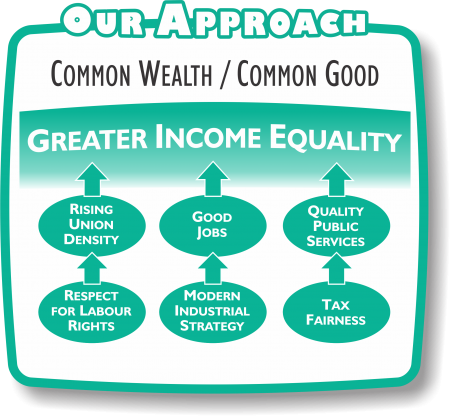AT A LOSS
800,000 Canadians will likely lose benefits without tax filing help

OVER 800,000 LOW-INCOME CANADIANS ARE UNDER THE GUN. Come September they could lose the financial life supports they count on to get by. They won’t if they file their income tax. Most of them don’t know how to do that.
Lower-income individuals in greatest need of government supports have the hardest time navigating the tax system to access them.
In 2018, thousands of volunteers helped over 830,000 low-income Canadians file their taxes. Due to COVID-19, these clinics have been cancelled across Canada.
Volunteers are still working hard to provide virtual tax help to vulnerable Canadians. But many low-income folks can’t afford home computers and internet connections—some don’t even have telephones. With libraries, community services and Service Canada offices closed, they don’t have public facilities to fall back on either.
Even if tax clinics re-open before September 1, it would be risky for volunteers to meet with individuals—particularly seniors and others more susceptible to the virus—and impossible for volunteers to process hundreds of thousands of tax forms in just a few weeks. Completing all this work on-line or remotely is not possible.
Main source of household income
More and more social benefits are delivered through the tax system. Over $50 billion annually in federal transfers go to low and middle-income Canadians, but only if they file their taxes, and dozens of provincial supports for lower incomes also require individuals to file their taxes each year.
For many households, these monthly supports are their biggest source of income.
They include:
- the Guaranteed Income Supplement (GIS), which provides up to $11,000 for low-income seniors
- the Canada Child Benefit, which provides up to $6,939 per child
- the low-income GST credit
- the Canada Workers Benefit, which provides up to $1,355 for an individual and $2,055 for a person with disabilities
- the Climate Action Incentive payment.
No real need to file at all
Canadians for Tax fairness favours completely eliminating any deadline for the 2019 tax-filing requirement for low-income earners. The CRA (Canada Revenue Agency) could simply use 2018 tax information to continue providing benefits and make adjustments once 2019 taxes are filed.
It doesn’t make sense for governments to require low-income recipients to fill out complicated tax forms—and to end their benefits if they don’t. The CRA already has much of the information it needs to fill out these forms itself.
The CRA should send out pre-filled preliminary tax forms for these groups and others, relieving them of the annual tax-filing burden as many other countries, such as Norway and Denmark, already do.
- 30 -













Add new comment